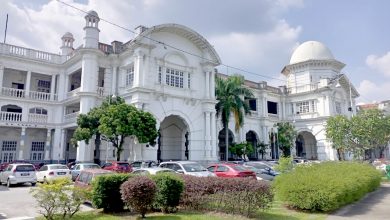Opinion Letter: Negative Impacts of Subsidy Removal Without Alternatives


The unilateral sanctions by the United States and its allies onto the commodity superpower, Russia, had caused daily essential prices to skyrocket, raising the national subsidy bill. Malaysia’s capacity to subsidise had been constrained by the large debt accumulated from 40 years of rampant corruption, mismanagement and 1MDB political scandal.
Post-15th General Election, subsidy removal will be the primary political agenda for the winning political alliances. Subsidy removal without proper alternatives decreases the overall purchasing power amongst the working class and self-employed households. Reduction in purchasing power has a negative impact on the people and nations.
Negative Impact of Subsidies Removal
Firstly, the decline in purchasing power reduces the household spending on nutritious food. Malaysians will reduce the proportion of high protein foods such as milk, chicken, eggs, and fish. Instead, Malaysians will increase the portion of cheap carbohydrates such as rice and instant noodles. Subsequently, the prevalence of obese and sugar related diseases NCD such as heart attack and diabetes will increase.
Children will suffer from nutrition poverty in the form of a high carbohydrate but low protein diet. The high carbs but low protein diet hampers crucial physical development amongst children such as muscle, eyes, ears etc. This poor development amongst lower income children leads to poor performance in academics, sports, and talent development.
Secondly, decline in purchasing power increases inequality amongst the future generations. Disproportional consumption of high carbohydrates combined with a low protein diet by low-income household children had been linked to low self-esteem. This low self-esteem, reduces the future employability of low-income children leading to no exit from vicious poverty.
Bank Negara Malaysia (BNM) had highlighted that the rate of employability amongst graduates had decreased in tandem with family income. Graduates with family income below RM1,000 have a nearly 2.5 times higher unemployment rate versus graduates with family income above RM5,000.
Thirdly, decline in purchasing power increases household conflicts such as domestic violence and divorce. These could be seen from the B60 household during the subsidy rationalisation under the Najib led Barisan Nasional administration. Financial uncertainty forced people to behave negatively under emotional circumstances towards their loved ones which could lead to separation.
Besides that, parents who are constantly worried about finances have a higher probability of beating their children for petty matters such as not switching off the TV or fan after using. Children suffering from domestic violence or parental divorce have a higher probability of drifting towards aggressive behaviours, bullying and gangsterism.
Fourthly, the decline in discretionary purchasing power increases the national unemployment rate. The decline in overall societal spending will cause petty traders and small businesses to shut down their business and join the unemployment pool. Meanwhile, the formal business will defend their profit margin through reduction of labour cost.
The absence of human rights protection framework for the migrant workers allows formal business to overwork but underpay the undocumented migrant workers. Henceforth, the formal business will replace local Malaysians with migrant workers. The retrenchment of local workers will increase the unemployment rate.
Conclusion
The current discussion on subsidy removal revolves around statistics and data without the impact analysis on real humans. The current elected politicians in the Federal Parliament made up of conservatives, ethno-religion, centrist, democrats, and liberals have failed miserably to understand the impact of subsidy removal without sufficient alternatives. A strong alternative must be the prerequisite to subsidy removal.
Written by:
SHARAN RAJ a human rights activist for universal education, environmentalist, and infrastructure policy analyst. Formerly, he was the first Central Committee below the age of 30 years old through both appointment and internal election for Parti Sosialis Malaysia (PSM). He is an engineer by qualification. Currently, he is pursuing postgraduate studies through research in economics focusing on regional currency union for ASEAN and Oceania.
========================================
Disclaimer: The views and opinions expressed in this article are those of the author and do not necessarily reflect the official policy or position of Ipoh Echo


